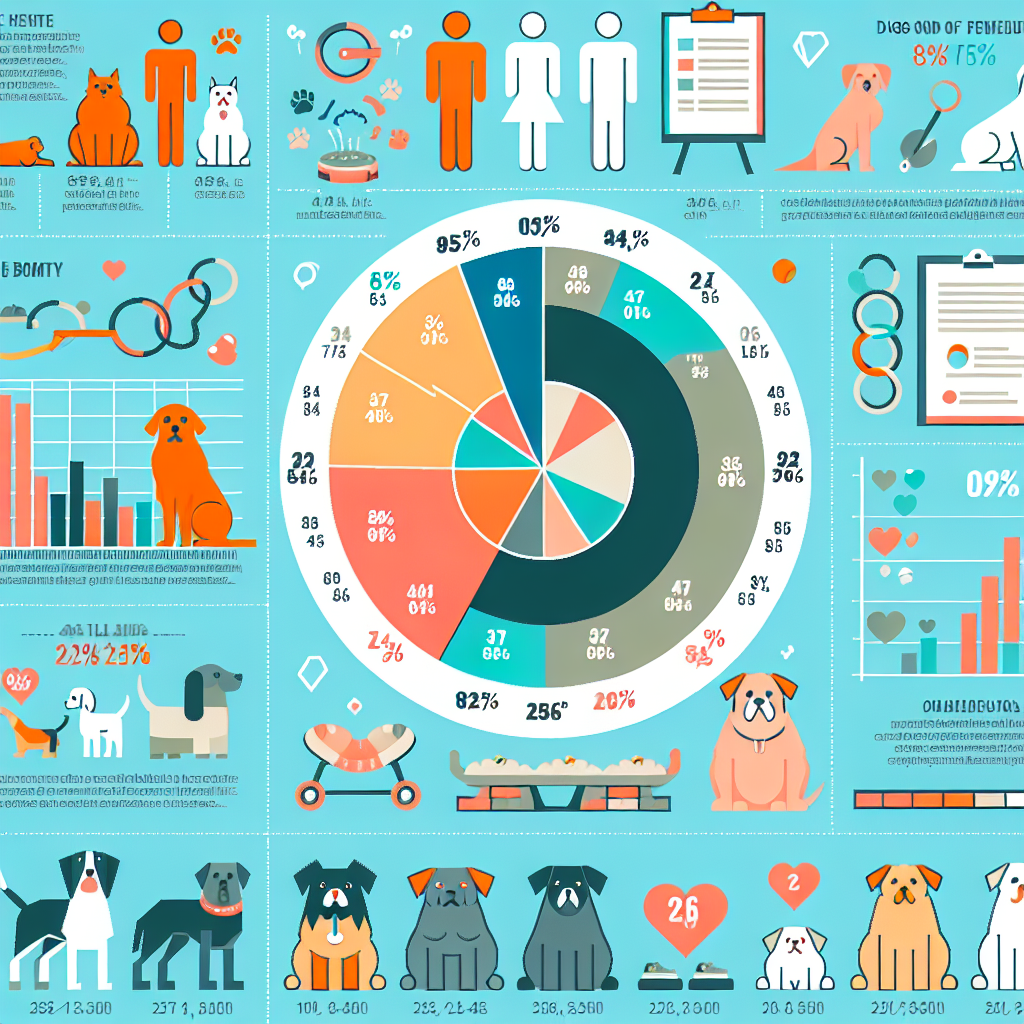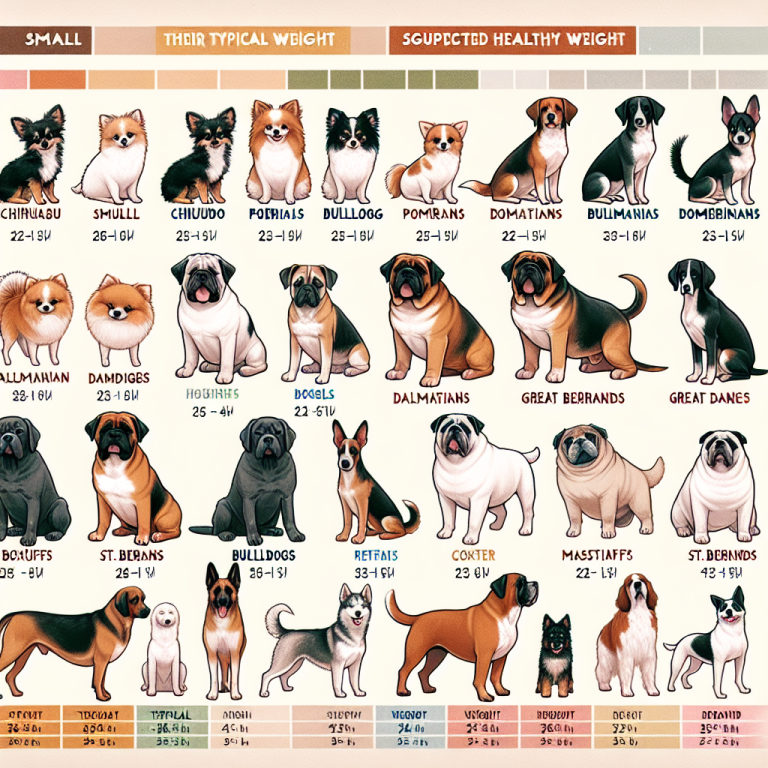Identifying the Causes of Obesity in Dogs
Obesity in dogs is a growing concern among pet owners and veterinarians alike. Just like in humans, obesity in dogs can lead to a myriad of health issues, including diabetes, heart disease, and joint problems. But how many owners actually have obese dogs, and what are the causes of this concerning trend?
According to a study conducted by the Association for Pet Obesity Prevention, an estimated 56% of dogs in the United States are overweight or obese. This statistic is alarming, as obesity can significantly impact a dog’s quality of life and overall health. So, what are the factors contributing to this high prevalence of obesity in dogs?
One of the primary causes of obesity in dogs is overfeeding. Many pet owners mistakenly believe that showing love to their furry companions means providing them with an abundance of food. However, overfeeding can quickly lead to weight gain and obesity. It is essential for pet owners to follow feeding guidelines provided by veterinarians and pet food manufacturers to ensure their dogs maintain a healthy weight.
Another common cause of obesity in dogs is a lack of exercise. Just like humans, dogs need regular physical activity to stay healthy and maintain a healthy weight. Unfortunately, many dogs do not get enough exercise due to their owners’ busy schedules or lack of understanding of their pet’s exercise needs. Regular walks, playtime, and interactive toys can help keep dogs active and prevent obesity.
Additionally, certain breeds are more prone to obesity than others. Breeds such as Labrador Retrievers, Beagles, and Dachshunds are genetically predisposed to weight gain and may require extra attention to their diet and exercise routine. It is essential for owners of these breeds to work closely with their veterinarians to develop a weight management plan that meets their pet’s specific needs.
Furthermore, age can also play a role in the development of obesity in dogs. As dogs age, their metabolism slows down, making it easier for them to gain weight. Older dogs may also be less active than their younger counterparts, further increasing their risk of obesity. It is crucial for owners of senior dogs to monitor their pet’s weight closely and make adjustments to their diet and exercise routine as needed.
In conclusion, obesity in dogs is a prevalent issue that can have serious consequences for a pet’s health and well-being. Overfeeding, lack of exercise, breed predisposition, and age are all factors that can contribute to obesity in dogs. It is essential for pet owners to be aware of these causes and take proactive steps to prevent obesity in their furry companions. By working closely with their veterinarians and following a healthy diet and exercise plan, pet owners can help their dogs maintain a healthy weight and live a long, happy life.
Tips for Managing and Preventing Obesity in Dogs

Obesity in dogs is a growing concern among pet owners and veterinarians alike. Just like in humans, obesity in dogs can lead to a myriad of health issues, including diabetes, heart disease, and joint problems. It is estimated that over 50% of dogs in the United States are overweight or obese, making it a prevalent issue that needs to be addressed.
One of the main reasons for the rise in obesity among dogs is the lack of proper diet and exercise. Many owners unknowingly overfeed their pets or give them unhealthy treats, leading to weight gain over time. Additionally, lack of exercise can also contribute to obesity in dogs, as they are not burning off the calories they consume.
To prevent and manage obesity in dogs, it is important for owners to be mindful of their pet’s diet and exercise routine. Feeding your dog a balanced diet that is appropriate for their age, breed, and activity level is crucial in maintaining a healthy weight. Avoid giving your dog table scraps or high-calorie treats, as these can quickly add up and contribute to weight gain.
In addition to diet, regular exercise is essential for keeping your dog at a healthy weight. Taking your dog for daily walks, playing fetch, or engaging in other physical activities can help them burn off excess calories and maintain a healthy body weight. If your dog is already overweight, gradually increasing their exercise routine can help them shed the extra pounds.
Monitoring your dog’s weight is also important in managing obesity. Regular weigh-ins at the vet’s office can help track your dog’s progress and make adjustments to their diet and exercise routine as needed. If you notice that your dog is gaining weight, it may be time to reassess their diet and exercise habits to prevent further weight gain.
It is also important to consult with your veterinarian if you suspect that your dog is overweight or obese. They can provide guidance on how to safely and effectively help your dog lose weight, as well as rule out any underlying health issues that may be contributing to their weight gain.
In conclusion, obesity in dogs is a common issue that can have serious health consequences if not addressed. By being mindful of your dog’s diet, exercise routine, and weight, you can help prevent and manage obesity in your furry friend. Consult with your veterinarian for personalized advice on how to help your dog maintain a healthy weight and live a long, happy life.
The Importance of Regular Exercise and Proper Nutrition for Dogs
Obesity in dogs is a growing concern among pet owners and veterinarians alike. Just as in humans, obesity in dogs can lead to a host of health problems, including diabetes, heart disease, and joint issues. But just how many owners have obese dogs? According to a recent study, over 50% of dogs in the United States are overweight or obese. This alarming statistic highlights the importance of regular exercise and proper nutrition for our furry friends.
Regular exercise is crucial for maintaining a healthy weight in dogs. Just like humans, dogs need physical activity to stay fit and healthy. Daily walks, runs, or playtime in the backyard are all great ways to keep your dog active. Not only does exercise help prevent obesity, but it also strengthens your dog’s muscles, improves their cardiovascular health, and provides mental stimulation. A sedentary lifestyle can lead to weight gain and a host of health issues, so it’s important to make sure your dog gets enough exercise each day.
In addition to regular exercise, proper nutrition is key to keeping your dog at a healthy weight. Many owners unknowingly overfeed their dogs, leading to weight gain over time. It’s important to feed your dog a balanced diet that meets their nutritional needs without overdoing it on calories. Consult with your veterinarian to determine the right amount of food for your dog based on their age, breed, and activity level. Avoid feeding your dog table scraps or high-calorie treats, as these can quickly add up and contribute to weight gain.
Obesity in dogs is a serious issue that can have long-term consequences for your pet’s health. In addition to the physical health risks, obesity can also impact your dog’s quality of life and overall well-being. Overweight dogs are more prone to joint pain, arthritis, and respiratory problems, which can significantly impact their mobility and comfort. By maintaining a healthy weight through regular exercise and proper nutrition, you can help your dog live a longer, happier life.
If you suspect that your dog is overweight or obese, it’s important to consult with your veterinarian for guidance on how to help them lose weight safely. Your vet can provide personalized recommendations for diet and exercise based on your dog’s individual needs. They may also recommend additional tests or treatments to address any underlying health issues that may be contributing to your dog’s weight gain.
In conclusion, the prevalence of obesity in dogs is a concerning issue that requires attention from pet owners. By prioritizing regular exercise and proper nutrition, you can help your dog maintain a healthy weight and reduce their risk of obesity-related health problems. Remember that every dog is unique, so it’s important to work with your veterinarian to develop a tailored plan for your furry friend. With the right care and attention, you can help your dog live a long, healthy life.





